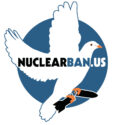Agenda Item #11 – Future of Life Institute
Professor Max Tegmark and Lucas Perry represented the Future of Life Institute. Tegmark reminded the Board that the Cambridge City Council had voted to encourage the Board to divest from firms involved in producing or upgrading nuclear weapons. He stated that he hoped to assist the Board in moving toward divestment, noting that his office at MIT has access to various financial analysis and machine learning tools. He stated that he would be happy to assist the Board with any analysis free of charge.
The Chairman reviewed the process the system uses in hiring and evaluating managers, noting that the Board was bound by a fiduciary duty to maximize returns for the benefit of employees, retirees and beneficiaries. He stated that the Board could not provide specific instructions to a manager as to which stocks to buy, or not buy.
Tegmark stated that he has run an analysis of the system’s portfolio, and found that only about 2% of the holdings might be considered problematic, with the largest single issue being the holding of Lockheed Martin. He stated that he felt that divesting from those firms would have little impact on the system’s returns. Tegmark described the current nuclear weapons upgrade program, and said that the major focus was on making the weapons more accurate. He also described the dangers of nuclear proliferation and accidental launch.
The Chairman noted that Tegmark’s report shows that the Neuberger socially responsible fund has direct holdings of nuclear weapons companies. Tegmark responded that some firms market themselves as socially responsible but may still include problematic firms. He stated that he would be happy to run his own analysis on various managers in order to provide a second opinion. Monagle stated that he was concerned with the various types of screens that could be applied by groups who might find many different types of holdings problematic, and added that he felt it was helpful when the legislature passed an unambiguous ban on certain investments, as they have done with tobacco.
Tegmark stated that one of the major benefits of divestment is to attach a stigma to the firms who work on nuclear weapons, and he described how American firms have largely exited the business of land mines and cluster bombs due to social pressure. He stated that he had no objection to the Board taking a gradual approach to divestment, and to start with the firms with the most direct involvement in nuclear weapons.
The Chairman recommended that Tegmark may wish to speak to the City about their deferred compensation offerings, since it seems unclear if the socially responsible investment options in that plan may have problematic holdings. Quirk advised that the system has non-disclosure agreements with many managers, and may wish to review those before releasing portfolio information for analysis by a third party. Tegmark stated that he would be interested in facilitating contact with various socially responsible funds who might respond to a future RFP.







